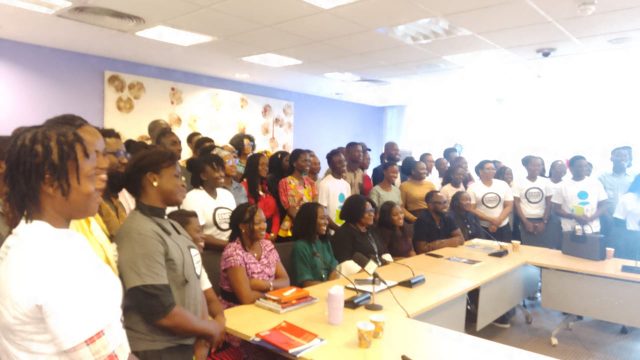The World Bank Group as part of the celebration of the International Day for the Eradication of poverty dubbed, “End Poverty” has call to action for government, institutions, civil society and individuals to collaborate on effective solutions to address poverty in various communities across he country.
It is against this background that the World Bank Group has challenged players to invest in human capital such as education, health, nutrition, skills development and support social safety net which includes cash transfer programs to provide immediate relief to the poor and the vulnerable people in society.
In addition, the Group have called for effective participation in community based organizations and self-help groups that works towards poverty reduction and social equity and also scale up policies that addresses structural inequalities to enhance growth.
The Acting World Bank Country Manager, Madam Eunice Ackwerh, made the call at an interactive the programme geared towards deepening stake holders understanding of the obstacles to poverty eradication and be abreast with ongoing interventions under the theme, ” Delivery with Ambition” in Accra.
The interactive session futher created a platform for stakeholders to understand the global and a livable planet and explore also World Bank Group strategies and interventions in poverty alleviation as well as knowledge sharing and solutions in reducing poverty in Ghana.
In 1992, the United Nations declared 17th October as the International Day for the Eradication of Poverty and it is in this regard that the World Bank Group country offices review and mark progress towards the eradication of poverty, ” she said adding that the Group supports Ghana towards inclusive recovery and sustainable development.
She said it is important for Ghana to implement policies that can enhance it’s income and access to basic services and complement climate investment to protect the most vulnerable from impacts of climate change through jobs and employment opportunities.
For his part, Ing. Harold Esseku, Water and Sanitation Specialist said a high percentage of Ghanaians do not have toilets in their various homes and resort to public toilet.
According to him, people defecate in the open daily as a result of poor sanitation and lack of access to portable water adding that the rural areas were badly affected.
Report by Ben LARYEA








![Stonebwoy holds star-studded party for ‘5th Dimension’ mega album [Video]](https://ghananewss.com/storage/2023/04/stonebwoy-partyy-100x75.jpeg)









